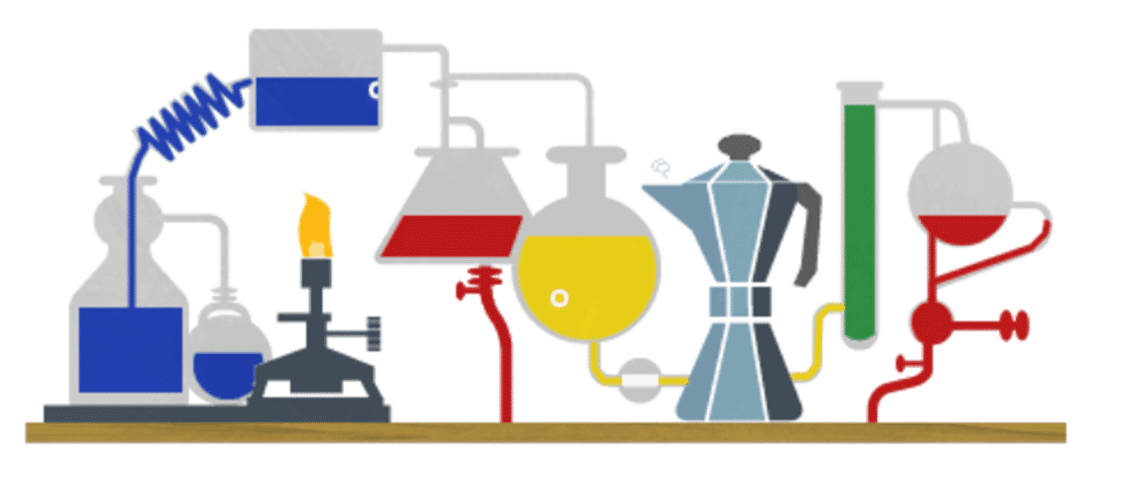Flames of Innovation: The Enduring Legacy of Robert Bunsen

Image Courtesy: Google Doodle
Robert Bunsen (30 March 1811– 16 August 1899 was a German chemist who made significant contributions to the field of chemistry. He is best known for inventing the Bunsen burner, a laboratory tool that is still widely used today.
Life and Career
Bunsen was born in Göttingen, Germany, on 30 March 1811. He studied chemistry at the University of Göttingen and later at the University of Berlin, where he worked under the guidance of some of the most prominent chemists of the time, including Friedrich Wöhler and Justus von Liebig.
Bunsen’s early research focused on inorganic chemistry, and he made several important discoveries in this field. In 1841, he discovered that iron oxide and other metal oxides could be reduced to the corresponding metals by the use of a carbon-based reducing agent. This process, known as the Bunsen process, is still used in the production of certain metals today.
In 1852, Bunsen began teaching at the University of Heidelberg, where he developed the Bunsen burner. The device, which is used for heating and sterilizing materials in laboratories, consists of a gas burner with an adjustable air valve that allows for precise control of the flame. The Bunsen burner quickly became a standard tool in chemistry labs around the world and is still in use today.
Bunsen also made important contributions to spectroscopy, the study of the interaction between light and matter. In collaboration with physicist Gustav Kirchhoff, Bunsen developed the technique of flame spectroscopy, which uses the Bunsen burner to heat samples of materials and produce a unique spectral pattern that can be used to identify the elements present in the sample. This technique revolutionized the field of analytical chemistry and paved the way for new discoveries in physics and astronomy.
Bunsen received numerous awards and honors throughout his career, including the Copley Medal from the Royal Society of London in 1860 and the Albert Medal from the Royal Society of Arts in 1888. He died in Heidelberg in 1899, but his legacy continues to be celebrated in the scientific community today.
Award and Legacy
Robert Bunsen made significant contributions to the field of chemistry, and his inventions and discoveries continue to have a lasting impact on the scientific community. Bunsen was widely recognized for his achievements during his lifetime and received many awards and honors for his work. In addition to the Copley Medal and the Albert Medal, he was also awarded the Royal Society’s Davy Medal in 1877 and was elected a foreign member of the Royal Society of London in 1859.
Bunsen’s most enduring legacy is undoubtedly the Bunsen burner, which is still used today in laboratories around the world. The burner’s precise flame and adjustable air valve make it an essential tool for a wide range of chemical reactions and processes.
Bunsen’s work in spectroscopy was also groundbreaking, and his collaborations with Gustav Kirchhoff led to the discovery of several new elements, including cesium and rubidium. The technique of flame spectroscopy that they developed has since been used to identify countless other elements and compounds, and it remains an important analytical tool in chemistry today.
Overall, Robert Bunsen is widely regarded as one of the most important chemists of the 19th century. His inventions and discoveries continue to be celebrated and studied by scientists around the world, and his name has become synonymous with the Bunsen burner and the precise measurement of chemical reactions and processes.
On 31 March 2011, Google celebrated Robert Bunsen’s 200th Birthday with a doodle.
Observer Voice is the one stop site for National, International news, Sports, Editor’s Choice, Art/culture contents, Quotes and much more. We also cover historical contents. Historical contents includes World History, Indian History, and what happened today. The website also covers Entertainment across the India and World.
Follow Us on Twitter, Instagram, Facebook, & LinkedIn

